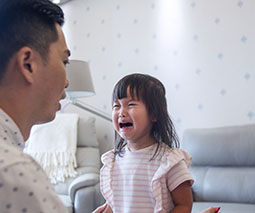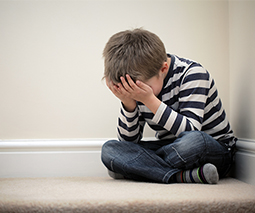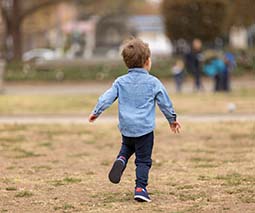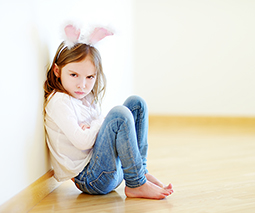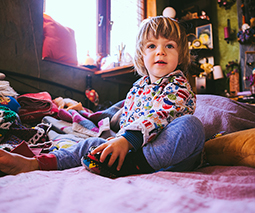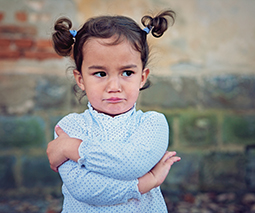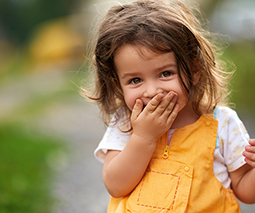7 things I’ve learnt helping my daughter manage her anger
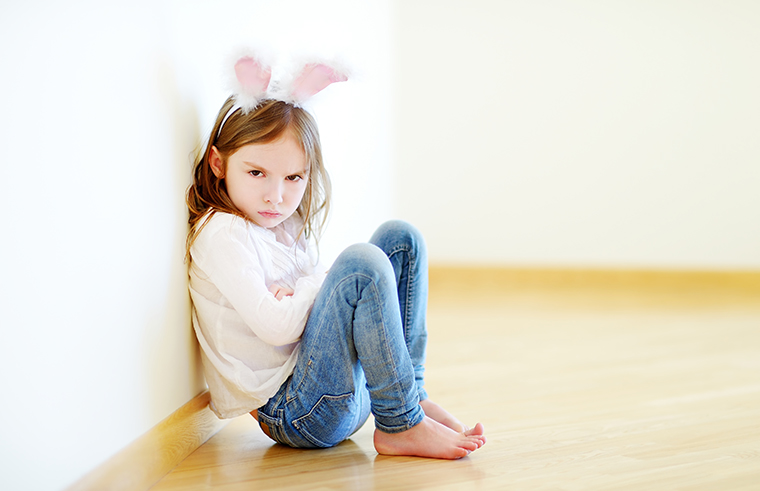
My daughter has always been on the feisty side. Even as a baby, she made a lot of noise to get her needs met and ensure that anyone in listening range knew about them. While I’ve learnt to appreciate the way she puts her feelings out there and stands her ground until she gets them attended to, lately I’ve been finding her anger a little harder to deal with.
She can be really quick to fly off the handle, and her fury can be incredibly intense – sometimes it seems like it’s almost too much for her to handle. Once she’s at her peak, it can be hard to calm her down, especially when I feel so stressed and upset myself.
Things don’t seem to be as straightforward as they were when she was a tantruming three-year-old. Toddlers’ needs are pretty basic during the early years – they’re usually to do with hunger, fatigue or being too hot/too cold.
But being a six-year-old in her second year at big school, my daughter is apparently way more complicated.

After yet another huge meltdown recently, which left everyone in the house shaken and upset, I decided to investigate more about how young kids process and express their anger. I wanted to find out how I could support her better, as she was clearly finding her angry feelings difficult to manage.
Here is what I learnt about helping young kids manage their feelings:
1. Kids need help putting words to their feelings
Young children can have trouble making sense of their feelings, but helping them talk about them can help. For example, talking about what it’s like to be angry and where we feel it in our bodies.
According to Dr Fiona Martin, Clinical Director of the Sydney Child Psychology Centre, it’s also important to help children learn the difference between feelings and thoughts.
“Teaching children that how you think about things can affect how you feel, and therefore how you respond to any given event, is part of learning to regulate emotion,” says Dr Martin.
2. It’s healthy to encourage expression of anger
Big feelings like anger aren’t always easy to express – even for us grown-ups – but we need to teach children that it’s okay to express their anger in an appropriate way.
“It’s important that we encourage children to express their emotions and as carers, we need to validate their emotional states,” says Dr Martin. “We don’t need to agree with their emotional state or the reasons for their anger but we do need to validate them.”
This means letting your child know that you understand what they’re experiencing, which in turn lets them know that their feelings are accepted by you. “Once a child has been heard, a lot of that stress comes down. When you talk about what’s upsetting you, you feel more at ease, because someone’s heard you,” adds Dr Martin.
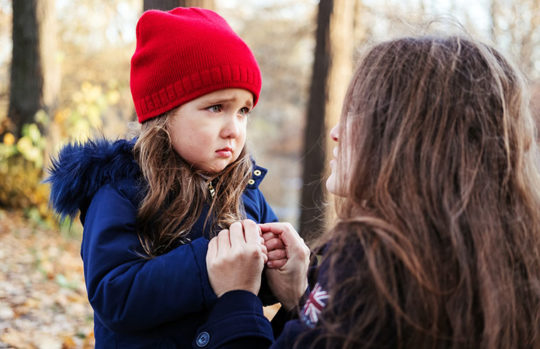
3. We need to teach them tools for coping
Once we start talking to children about their anger, it’s useful to educate them on safe ways they can let their anger out, that don’t involve hitting, screaming or any other unwelcome behaviour. Discuss with your child some ways they could release pent-up anger or frustration – for example, through screaming into a pillow, stomping to music or squeezing a stress ball.
It’s also important to encourage your child to consider what can help calm them down when they’re beginning to feel angry. For example, I’m encouraging my daughter to take a break and some deep breaths when she feels frustrated during games with her siblings.
4. Kids need to learn to problem solve with our help
Encouraging your child to work through problems instead of reacting to them teaches them to consider their options before their anger erupts, which is going to be a life-long skill.
“Parents can coach children to problem solve by facilitating the process,” says Dr Martin. “For example, if they’re fighting with siblings over a game, ask them, ‘How do you think we can solve this?’ and see if they can work it out themselves.”
5. Kids need us to role-model whenever possible
“Children will generally behave as you do,” says Dr Martin. “So if you role model poor emotion regulation, then you’re likely to see a little mini-me.”
This means that flying off the handle when your child has an angry outburst – however inappropriate it may be – is not going to fly. “If you respond to your child’s anger in an aggressive way, firstly it’s not validating their emotional state, but it’s also not a healthy way to respond to behaviour that you’re not okay with,” says Dr Martin.

6. How we respond to behaviour depends on self-care
It’s no easy task to manage your anger appropriately around your child – I know this from personal experience – but if you’re having trouble with this, Dr Martin suggests the problem may be in the way we’re taking care of ourselves as parents.
“I think women are doing too much,” she says. “Self-care is the big thing here. Underneath not coping with anger management is the underlying belief that self-care is selfish. We live in a world where women are doing most of the mental load, most of the domestic work and they’re working as well. They’re self-sacrificing too much, way too often.”
In other words, if we want to be able to help our children with their emotions, we need to be taking care of ours first.
7. When to seek help
If you’re finding yourself frustrated and often desperate about your child’s anger, it’s a good idea to seek help so you can learn to cope better with it. This could mean getting in touch with your GP or contacting a parenting expert for advice.
However, it also means making self-care a priority, so you’re at your best to handle things. When it comes to seeking help for your child’s angry outbursts, Dr Martin suggests that if it’s happening more often than not, it could be time to contact a child psychologist or some other health professional.
“If it occurs across different environments and it happens frequently, reach out for some assistance as a parent, because we need to look at what’s causing it,” she suggests.
 Need some more toddler behaviour advice? Our Parent School toddler experts can help. Click to find out more or book a one-on-one session.
Need some more toddler behaviour advice? Our Parent School toddler experts can help. Click to find out more or book a one-on-one session.
